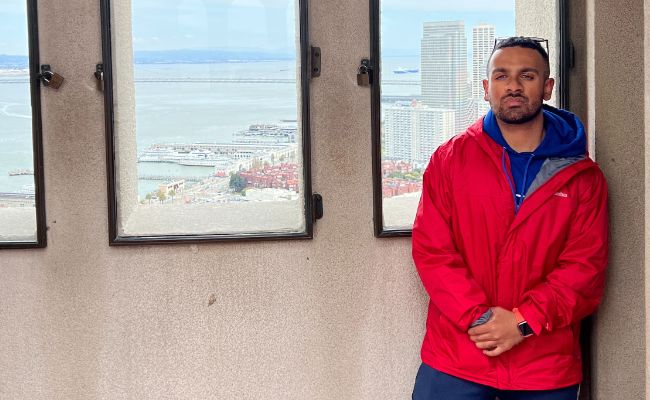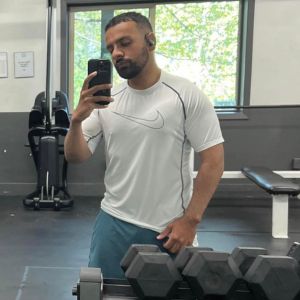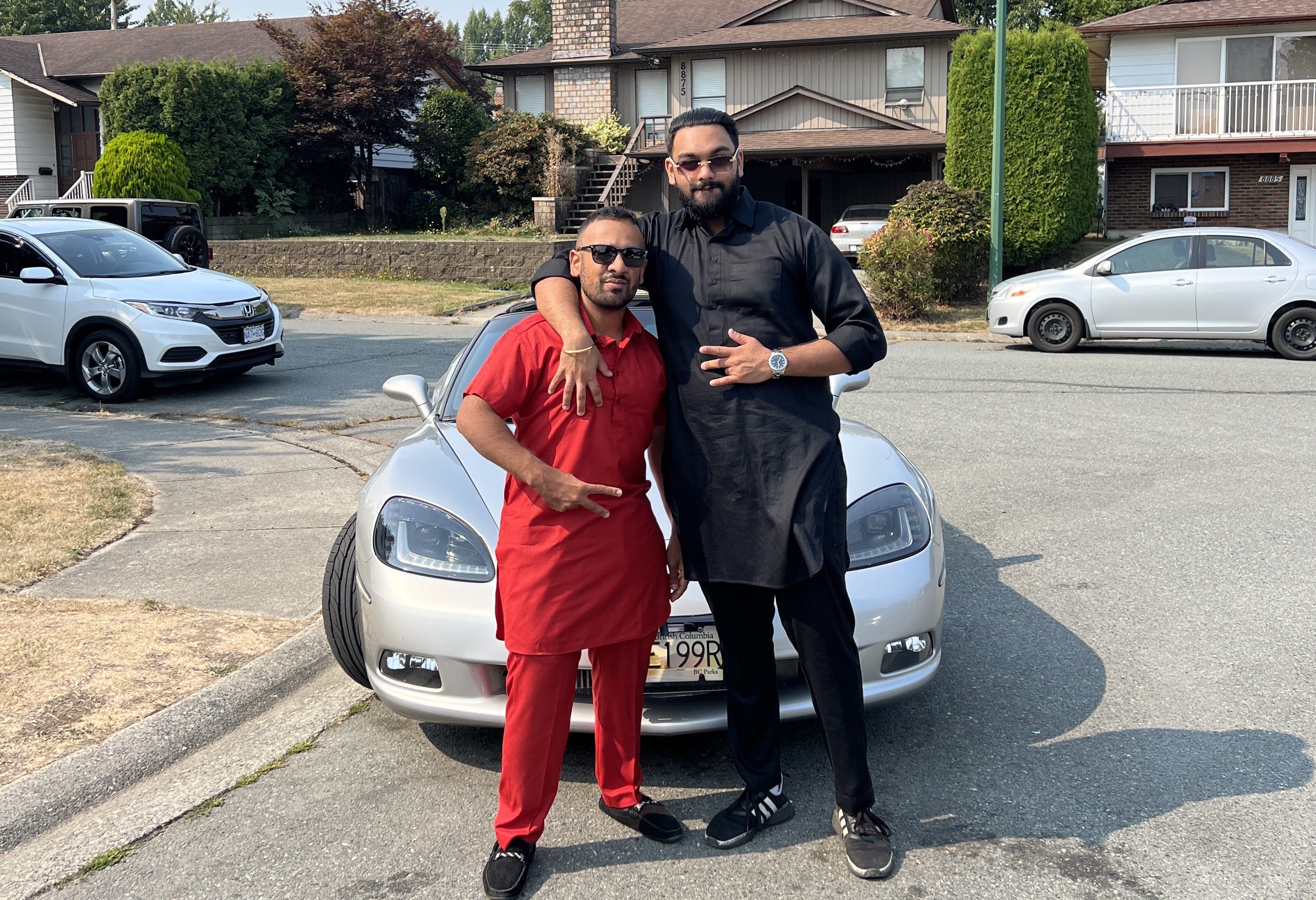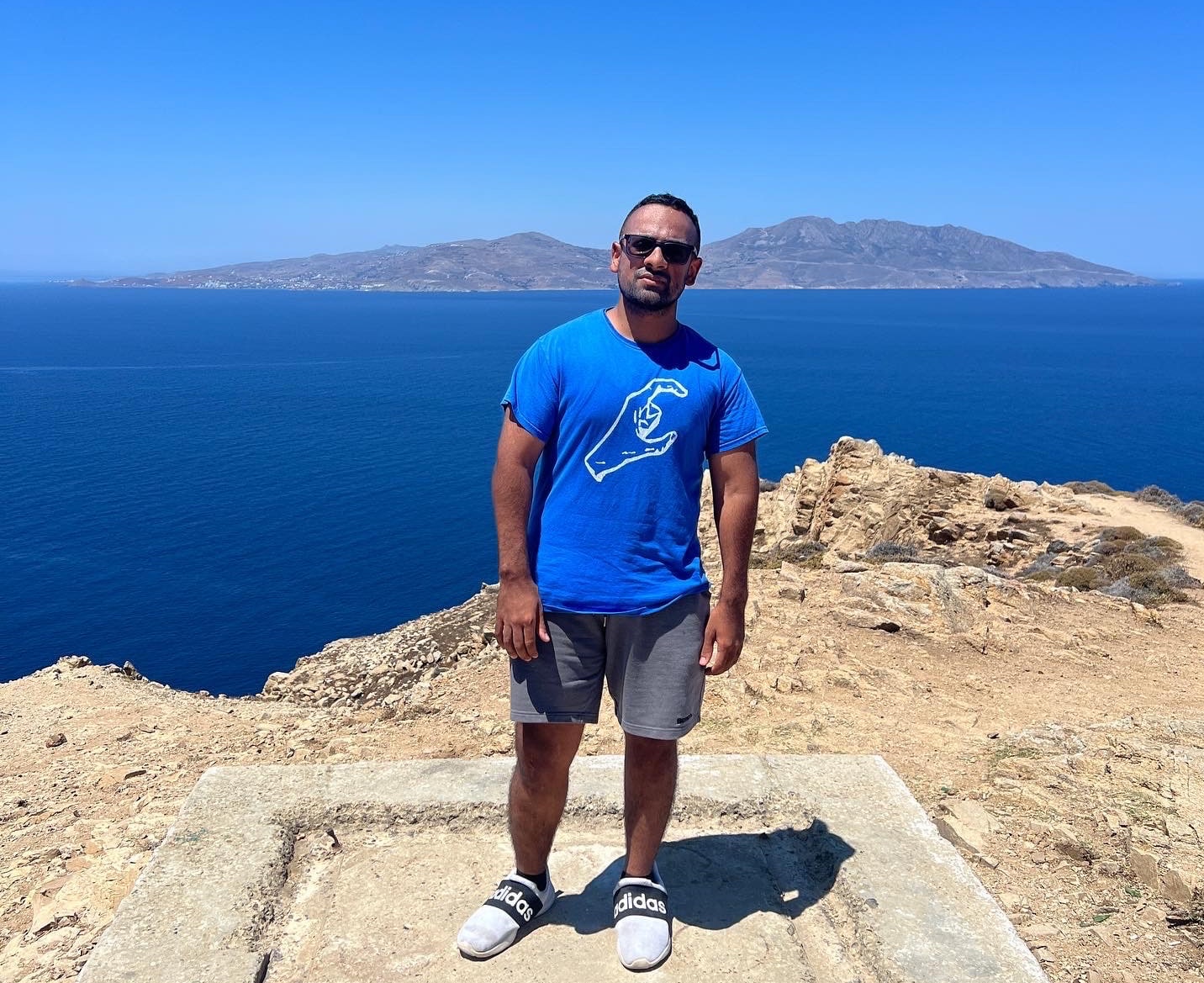

When Tajinder “TJ” Kandola was a baby, his parents knew something wasn’t quite right. Around four or five months old, TJ cried often and seemed to be in constant pain. “My mom said I was agony all the time,” he recalled.
His mother raised concerns with their doctor, and eventually, TJ was referred to a specialist. That’s when they learned the truth: TJ had osteogenesis imperfecta (OI). This rare disease affects the strength and development of bones.
He was diagnosed with Type III OI—one of the more moderate forms of the condition—but his case was on the milder side. “I still have to be careful,” TJ said, “but it doesn’t interfere with my daily life anymore.”
Waves of Injury, Moments of Hope
The injuries seemed to come in waves. From age four through nine, he endured numerous fractures. Then there was a quiet stretch—from ages eight to thirteen—when he didn’t break any bones at all. “We assumed the worst was behind us,” he said. “I started doing the things my friends were doing.”
But then, the breaks returned during his teenage years.
Until he turned 18, TJ received pamidronate treatment (used to strengthen bones and prevent osteoporosis) every few months locally at the British Columbia Children’s Hospital in Vancouver, BC. He was admitted to the hospital for three consecutive days at a time, with each session involving several hours of IV medication. “It went on like that for years,” he said. “But after I became an adult, I didn’t need treatment anymore. I’ve only had one or two breaks since I turned 18.”
His last major procedure was in 2016 for a fracture to his tibia and fibula. It was minor—and since then, he’s remained fracture-free.
Despite it all, TJ found solace in swimming—one of the few activities doctors encouraged. Over time, it became something he genuinely enjoyed. “I’ve gotten quite good at it,” he said.
Later, he added gym workouts to his routine, developing a passion for bodybuilding and strength training. “On leg days, I have to be careful—less weight, more rest—but I’m able to do most exercises now,” he said.

Finding Strength in the Everyday
Even though TJ’s OI is relatively mild compared to others with the condition, it shaped his life in powerful ways—some painful, others deeply transformative. “As a kid, it was tough to watch your friends run around and wonder why you couldn’t,” he said. “As an adult, I understand why my parents made those decisions. But as a child, it was tough to comprehend.”
His parents, who immigrated to Canada and were still young when TJ was diagnosed, bore the emotional weight of the journey alongside him. “They were heartbroken. They didn’t understand what was happening,” he said. “I think it was even harder on them than it was on me.”
The toll on his family was significant. His mother often missed work to care for him, answer emergency calls, or pick him up from school after an injury. “She got the brunt of it,” TJ admitted. “For me, that hurts more than anything—just knowing what she went through for me.”
TJ’s older brother, born without OI, was taught to be gentle with him from an early age. “We were brothers, so of course we fought sometimes,” he said, laughing. “But I know my brother felt neglected a bit because I had so many health issues and needed a lot of attention.”

More Than a Diagnosis
As a child, TJ didn’t connect with other people living with OI. But as an adult, he’s found community in unexpected places. “I never joined hospital support groups or anything like that,” he said. “But through Reddit, I’ve met others with OI. It’s been helpful—just having those conversations.”
TJ found identity and passion in activities such as cars and travel. “Cars have always been a big part of who I am,” he said. “I can talk about engines and performance for hours. It’s my thing.”
Travel become his way of reclaiming lost time. “Because of OI, I missed out on so much growing up,” TJ said. “So, once I got healthier, I started traveling.”
What began as a rough group trip turned into something more meaningful: solo travel. In just the past few years, TJ has visited Indonesia, Mexico, Greece, Japan, Dubai, India, and countless places across the U.S. “I still remember this one moment,” he said. “It was just before I left for Greece in 2023. My mom looked at me and said, ‘You’ve been traveling a lot lately. Maybe you should slow down and save your money.’ I told her, ‘I missed out on so much as a kid… now that I can, why not?’ She broke down and hugged me. That moment stuck with me.”
For TJ, those solo trips have been empowering. “No one to check in with. No one to compromise with. Just me, doing my own thing,” he said. “It’s one of the most freeing experiences of my life.”

Looking Back, Moving Forward
Not everything has come easily. When it comes to dating and relationships, TJ admitted that it has been one of the more challenging aspects of living with OI. “I’ve never been on a date or in a relationship,” he said. “I do think people with disabilities have to try even harder. The dating world today is so superficial—it’s all about looks, height, and job status. You don’t get to show your character.”
Still, TJ remains hopeful. “I’ve tried online, in person—nothing’s worked yet, but I haven’t given up. I’d love to be married in five years. That would mean a lot to me and my parents.”
Now 27, TJ works in government security, but he hopes to transition into the medical field in the future.
TJ emphasized that people with OI can lead whole, fulfilling lives. “I can do about 90% of what anyone else can,” he said. “Yes, I walk with a limp. I’m on the shorter side—5'3"—but I’ve never let that hold me back.”
When asked what he wants others to know, TJ was clear: “The public doesn’t always treat people with disabilities fairly. Sometimes, we’re treated like we’re insignificant, or worse, like we’re not capable mentally. That’s the biggest insult—when people assume we’re not intelligent or offer fake sympathy.”
But he’s not bitter—just honest. “All the injuries, the struggles, the challenges—as hard as they were—made me into the person I am today. I’m genuinely grateful. I wouldn’t not have this condition because it shaped how I see the world,” he said.


.jpg)